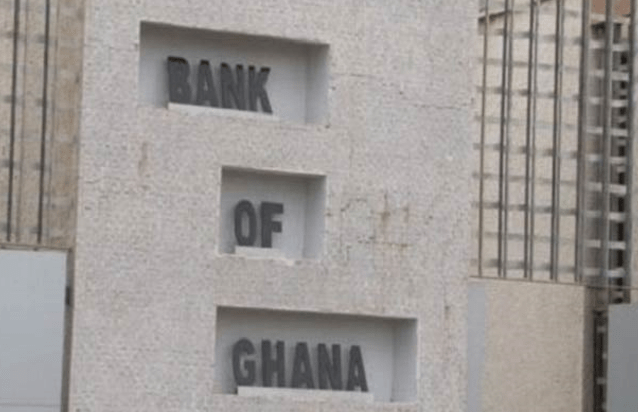The economy’s performance in second-quarter of this year, especially, has led to discussions about a potential interest rate cut by the Bank of Ghana (BoG).
Data from the Ghana Statistical Service (GSS) indicate that the economy expanded by 5.8 percent in first half-2024, exceeding the year’s initial 1.5 percent growth target. However, second quarter-2024 was particularly strong with GDP growth reaching 6.9 percent – which the GSS reports as “the highest quarterly GDP growth in five years”.
This economic performance has increased expectations that the monetary authority will consider reducing interest rates at its upcoming September Monetary Policy Committee (MPC) meeting.
Currently, the central bank maintains a rate of 29 percent – a measure implemented to address inflation and stabilise the cedi. But with with inflation decreasing from its peak of 54.1 percent in December 2022, there may be room for policy adjustment analysts maintain.
For instance, investment firm Apakan Securities believes a modest rate cut could be on the table as the central bank seeks to balance inflation control with growth support. It comes as the industrial sector has continued being a key driver of this growth, expanding by 8 percent.
That notwithstanding, some analysts advise caution regarding a potential policy shift. While the industrial sector has performed well, other sectors may face obstacles that could impact growth in the year’s latter-half, they argue.
For example, GSS data indicate that agriculture – though showing a 5 percent growth in first half-2024 – may slow down in coming months due to poor rainfall affecting crop production. Similarly, the services sector – particularly telecommunications – is “facing difficulties that could limit its contribution to overall growth”.
The services sector and agriculture both showed resilience, but whether this momentum will carry into second-half of the year remains to be seen.
While a reduction in interest rates could stimulate domestic investment and consumption – potentially supporting further economic growth, the central bank must consider this against the need to maintain inflation control and currency stability, analysts on the other hand maintain.
External factors also play a role in the MPC’s decision-making process. The current debt- restructuring efforts could also influence the central bank’s approach to monetary policy.
Political will required to combat money laundering and terrorist financing
Political will and commitment at the highest levels of government have emerged as critical factors determining the success or failure of West African nations in combatting money laundering and terrorist financing.
Experiences of countries like Ghana and Nigeria have underscored the pivotal role of political leadership in driving effective implementation of the Financial Action Task Force’s (FATF) recommendations.
“Ghana’s success in doing so was largely due to government’s prioritisation of these issues and their active involvement in the process,” Benjamin Kyei Armoo, Chief Compliance Officer at GCB Bank has noted.
On the other hand, some of Ghana’s neighbours in the West African region have struggled to make meaningful progress. This came to light at a recent Afreximbank Compliance Forum in Senegal.
The main aim was to draw participants’ attention to the main areas of intervention for effective and efficient implementation of FATF standards.
Experts during the forum argued that this disparity in political will has serious implications for the region’s overall resilience against illicit financial flows and the stability of its financial systems.
The issue is particularly critical as West African nations grapple with implications of the FATF’s revised Recommendation 24, which encourages countries to adopt measures that prevent corporate structures from being misused for criminal purposes.
“If a country takes the approach that this is a ‘Western’ recommendation, then their compliance will be a bit slow. But when you’ve been on the gray-list and come out, like Ghana, you know the importance of these measures and the impact they can have on your economy and international standing,” Mr. Armoo indicated.
Failure to address this critical challenge could jeopardise the region’s economic progress and undermine its standing in the international community.
In a bid to accelerate progress, the African Development Bank and Inter-Governmental Action Group against Money Laundering in West Africa (GIABA) have initiated a three-year project to combat money laundering and terrorism financing in their member-countries.
The project, ‘Capacity Development for Anti-Money Laundering and Countering the Financing of Terrorism in GIABA Member States in Transition’, is supported by a US$5million grant from the African Development Bank Group.
The project aims to enhance resilience in West Africa by improving anti-money laundering and counter-terrorism financing regimes. It will focus on developing capacity in GIABA member-states, particularly those in transition.










